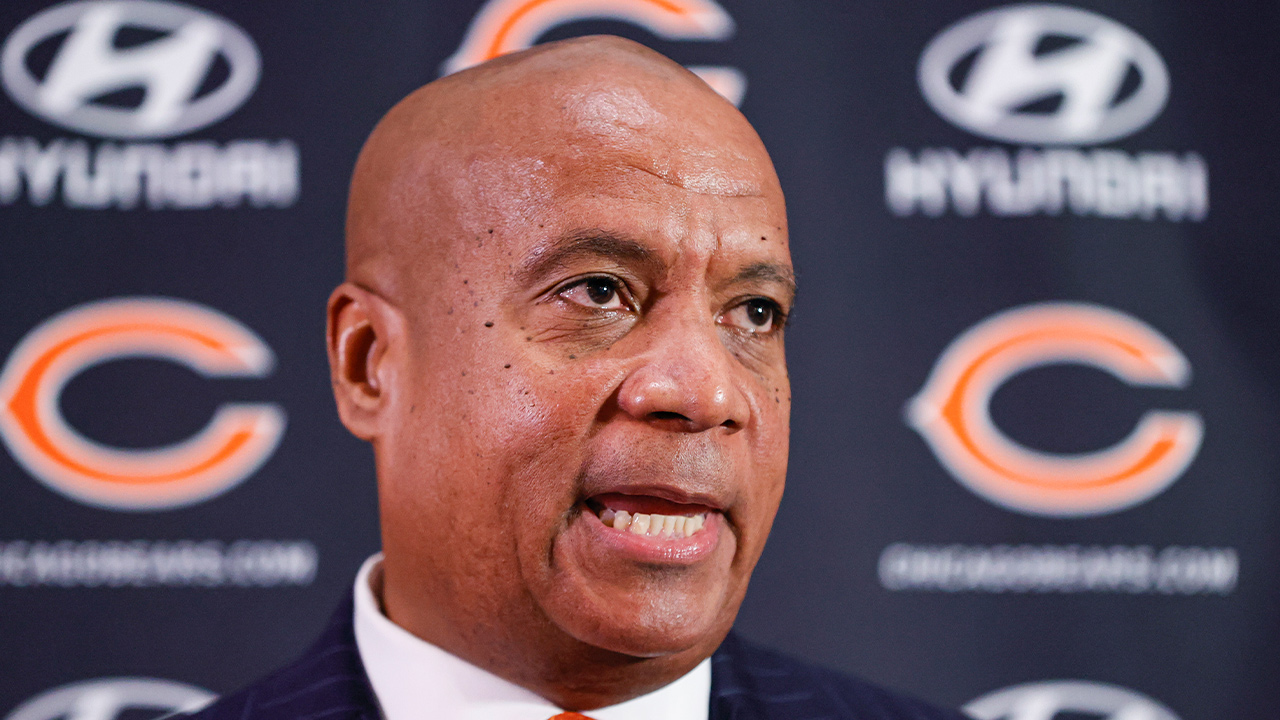Mayor Lori Lightfoot issued an emergency declaration Tuesday after what she said was a "surge" of new migrant arrivals in the last month, leaving hundreds of people and families living out of police stations, city buildings and other temporary shelters after being "inhumanely bussed to Chicago" from Texas.
Lightfoot said the "humanitarian crisis" has forced the city to take "collective and swift action" and will continue to require new shelters, but the declaration is an effort to seek federal and state assistance.
"We should all understand that this crisis will likely deepen before we see it get better, so as we move forward, the city of Chicago will have to bring additional locations online to prepare for the arrival of more individuals and families and to relieve Chicago Police Department districts," Lightfoot said in a statement. "The city of Chicago is in the midst of a national humanitarian crisis, and through a unified effort in accordance with its values as a welcoming city, Chicago is doing everything it can to respond to the urgency of this matter. The city has continued to call on federal and state governments to support the new arrival mission with much-needed additional funding and resources for emergency shelter and resettlement, as there are not enough resources currently to meet the need."
In total, Chicago has received more than 8,000 migrants since August 2022, with over 1,200 migrants arriving within the first month of Texas Gov. Greg Abbott's "Operation Lone Star." But Lightfoot said a recent "surge" has led to challenges.
After a decreased pace of arrivals to start 2023, a second influx has brought complications to city officials, with hundreds of migrants sleeping on the floor of police stations in Chicago. Another 48 arrived on Tuesday alone.
Earlier this month, Lightfoot penned a letter to Abbott, urging his administration to halt the controversial program.
In the letter to Abbott, Lightfoot wrote Chicago is a welcoming city and explained it collaborated with local partners to address the challenge, but contended Abbott's "lack of consideration or coordination in an attempt to cause chaos and score political points has resulted in a critical tipping point in our ability to receive individuals and families in a safe, orderly, and dignified way."
Local
The mayor continued on, urging the governor to "treat these individuals with the respect and dignity that they deserve," saying "to tell them to go to Chicago or to inhumanely bus them here is an inviable and misleading choice."
Feeling out of the loop? We'll catch you up on the Chicago news you need to know. Sign up for the weekly Chicago Catch-Up newsletter.
Activists are currently pushing for more resources for the many migrants arriving in Chicago, hundreds of whom are in need of medical treatment, basic supplies and food as well as access to showers.
Additionally, residents in Chicago's South Shore are protesting the use of the former South Shore High School to house arriving migrants, demanding the school only be used for community purposes.
Residents have also taken aim at the local, federal and state governments involved for what is seen as poor preparation with knowledge of more arriving migrants.
With the vast majority of the migrants being Spanish-speaking, local residents have criticized the placement of the the temporary housing, saying that arriving migrants are not being put in the best position to acclimate to the U.S. and Chicago.
In her declaration Tuesday, Lightfoot said "the city has learned that the flood of migrants into Chicago will not only
continue unabated but will increase, with a resumption of bus arrivals starting on May 9."
The situation has left city resources "now stretched to the breaking point" and "extraordinary measures are necessary," the declaration reads.
"I reserve the authority to request the Governor of the State of Illinois to mobilize the National Guard to provide staffing and logistical support to address this emergency in the city of Chicago," it adds.
Illinois Gov. J.B. Pritzker said in a release following the declaration that a request for National Guard assistance has not yet been made, but the governor "is committed to pursuing every available option to assist people who have traveled for months to flee oppression in search of opportunity."
The declaration is one of Lightfoot's final moves as mayor, with Mayor-elect Brandon Johnson set to take office Monday.
Johnson released a statement on the recent arrivals last week, blasting governors "around the border who have demonstrated they are not open to collaborating."
Johnson said he's open to having conversations regarding the crisis and will one day ensure there is a "real effort to coordinate our resources at the federal, state, county and city levels."



